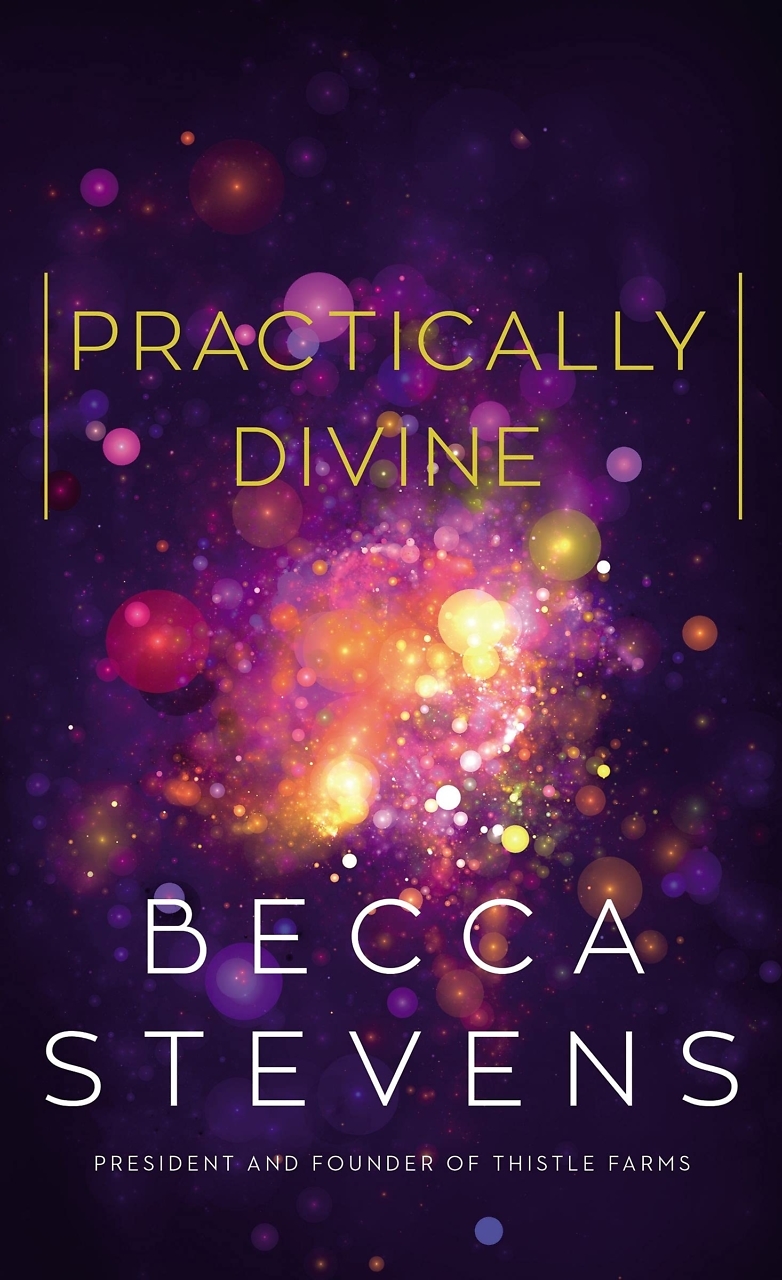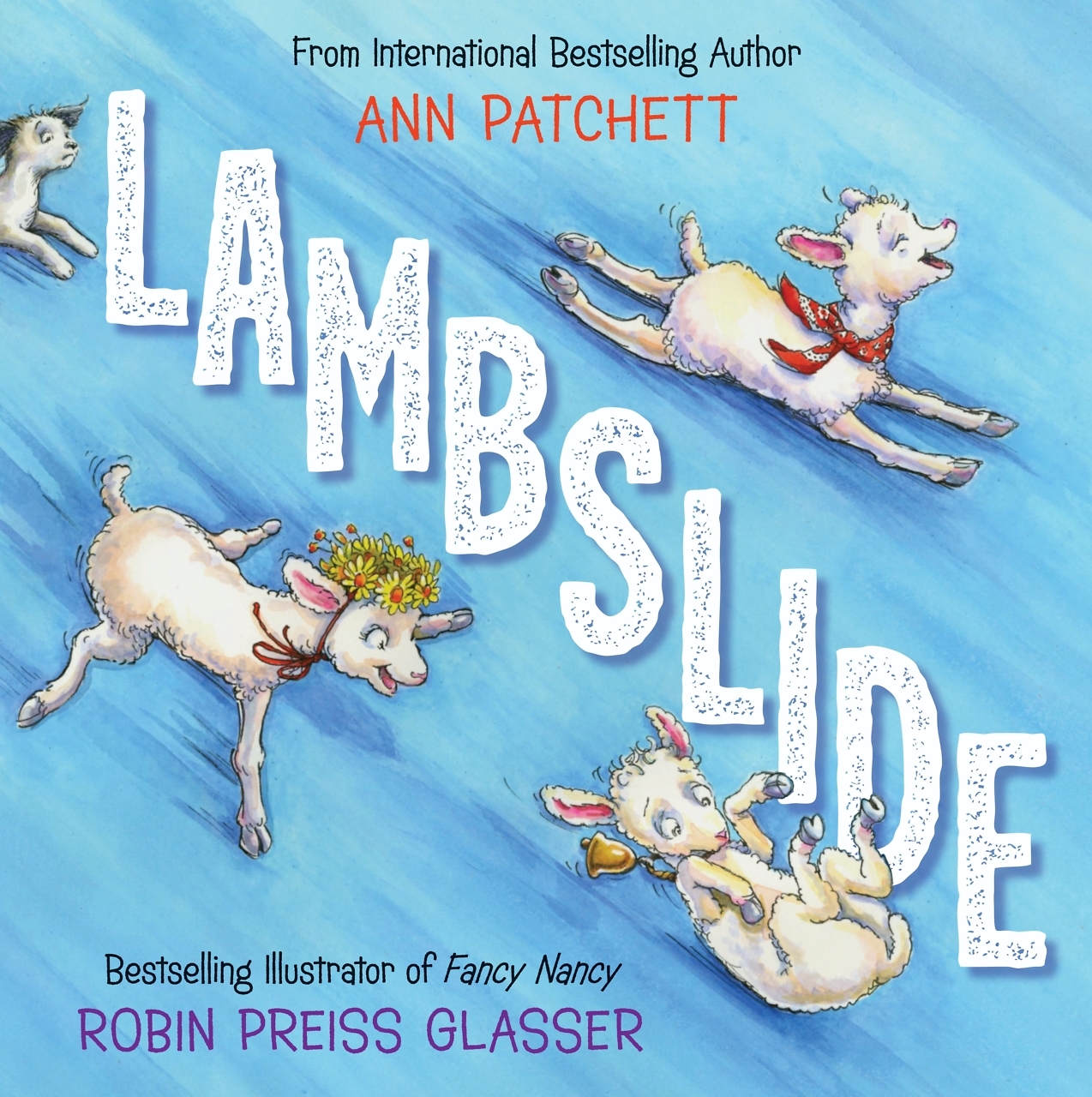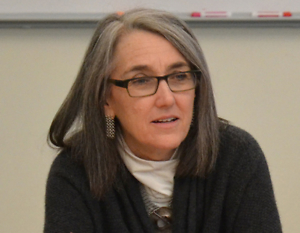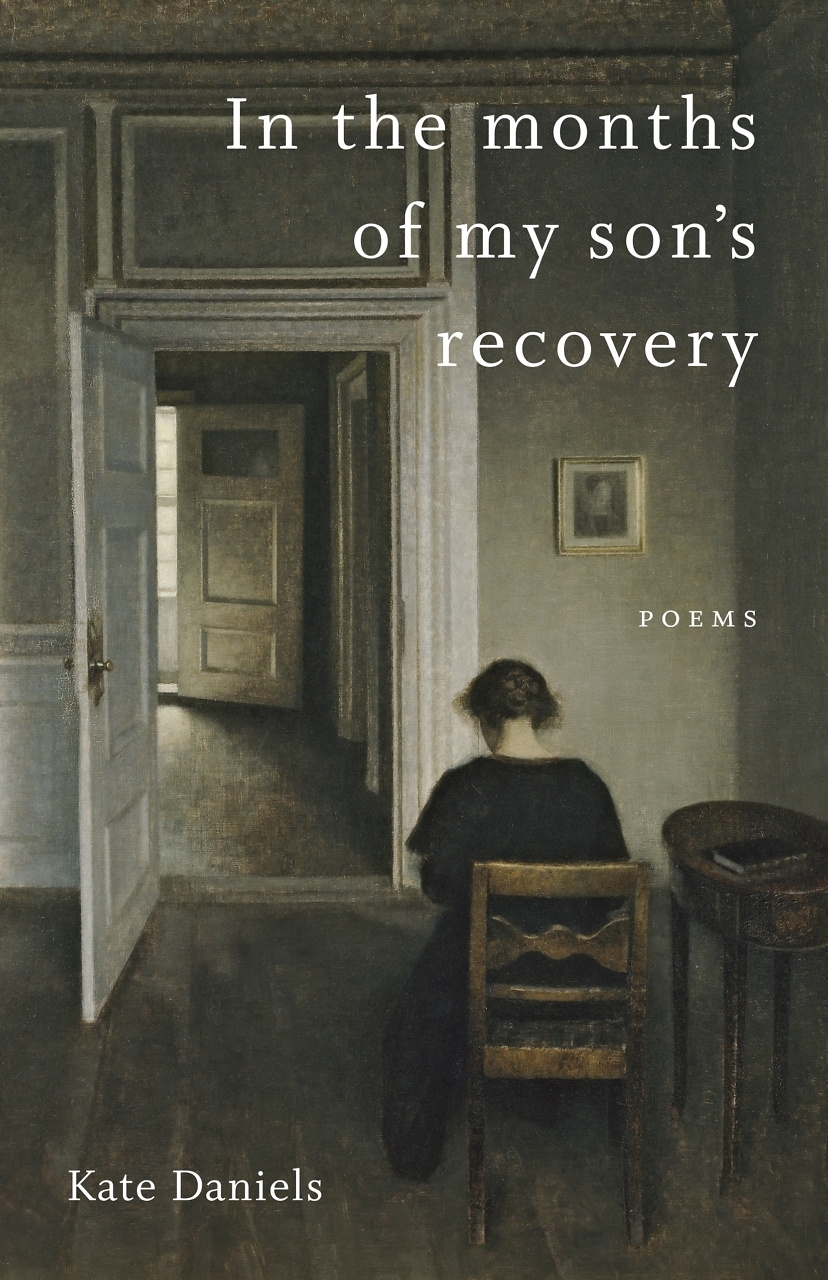Why the Future of Poetry is Safe
U.S. Poet Laureate Kay Ryan talks shop with Chapter 16
When Kay Ryan was named U.S. Poet Laureate in 2008, The New York Times aptly described her as an “outsider with sly style.” She delivers wit and insight in deft, compact verse that is often profound but never ponderous. Though Ryan has been compared to Emily Dickinson, Marianne Moore, and Stevie Smith, her work is marked by a wisdom and soulful delight that make her voice unique.
The California native, who published her first collection in 1983, has garnered enormous critical respect and a slew of honors and awards, including the prestigious Ruth Lilly Poetry Prize in 2004. She has nevertheless remained something of an outsider in the literary world, shunning what she calls “the whole cooperative workshopping thing” in favor of the solitary pursuit of writing and a part-time teaching job at the College of Marin, a community college in Kentfield, California. She reluctantly accepted the very public post of poet laureate at the urging of her longtime partner, Carol Adair, who died in 2009.
In anticipation of her reading at the University of Tennessee in Knoxville on February 16, Ms. Ryan spoke by phone with Chapter 16 about her work and the experience of being poet laureate.
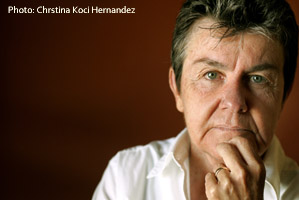 Chapter 16: In a 2008 interview with The New York Times, you said you thought being poet laureate would make it impossible to work. Have you found that to be true?
Chapter 16: In a 2008 interview with The New York Times, you said you thought being poet laureate would make it impossible to work. Have you found that to be true?
Ryan: Yeah, I have.
Chapter 16: But you have a new book coming out.
Ryan: I do, but if you notice it’s “new and selected,” so there are some new poems, but it’s mostly stuff I wanted to keep from earlier volumes, really wanted to collect. I haven’t been very productive during my laureateship. There are just too many distractions.
Chapter 16: You do seem to be very busy, from what I see by following you on the web.
Ryan: I’m glad it shows up that I’ve been busy. Sometimes I wonder what I’ve been doing with my time. I just think, “Kay, you must be lazy.”
Chapter 16: Given that you thought you wouldn’t be able to work, why were you willing to be poet laureate?
Ryan: Well, there are a number of reasons to do it. It’s a tremendous honor. It’s an honor that one just feels difficult to resist. And my partner, Carol Adair, made me do it. She was very ill at the time, and I gave her a long list of reasons why I thought it was a very bad idea for me to accept this honor, and she said, “Alright then, I understand. So do it for me.” So I did. And I understand that she was actually making me do it for myself. It’s a marvelous distinction.
Chapter 16: Have you been teaching at all during the time you’ve been poet laureate?
Ryan: Actually I’m teaching one course at Stanford this quarter, which is very different for me, because I’ve spent my life teaching community college. But no, I haven’t been teaching at the community college while I’ve been laureate.
Chapter 16: Do you think you’ll return to that?
Ryan: I doubt it. I did it for about thirty-three years and I think I pretty much got it out of my system.
Chapter 16: I understand you once taught at San Quentin.
Ryan: Yes, I did.
Chapter 16: Was it always important to you to teach students who were disadvantaged in some way?
Ryan: Well, you know, that would make me look much too righteous and socially engaged. Actually, it was just a matter of chance, pretty much. When I came to Marin County, which is just above San Francisco, I didn’t know how I was going to make my living. I was twenty-five and I had just left a Ph.D. program impulsively. I had no idea what I was going to do with my life. I arrived in Marin and I realized I had to make a living. So I called the local community college. I had taught a little bit in the University of California system and at another community college where I’d actually been a student—just a class here and there. So I called the local college, and they needed a class covered right that day. I got one class to teach in basic English skills, and I simply stayed there forever, part time. I’m a creature who likes habit, so I just kept doing the same thing.
And I of course felt good about it, because it’s really survival English, it changes people’s lives. It was good work, and it doesn’t have the confusions of trying to teach the essay. Teaching at a higher level requires you to wrestle so mightily with the faulty thinking of the students, and there’s a greater clarity when you’re just trying to introduce topic sentence and primary supports.
Chapter 16: So you never taught any kind of creative writing?
Ryan: No, and I never wanted to. I really always wanted to keep my private pursuits to myself. It was hard enough for me to deal with my own writing without trying to deal with anyone else’s.
Chapter 16: Speaking of your own writing, I want to ask you about a phrase you wrote in an essay—”there’s a giggly aquifer under poetry.”
Ryan: Yes, I love to believe that.
Chapter 16: It’s a great image for how poems work, and many of your poems are actually quite funny. When you sit down to write a poem like “Outsider Art,” do you know you’re going to be funny? Is the point to be funny?
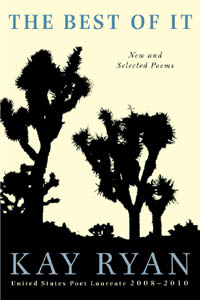 Ryan: See, I wouldn’t even think that “Outsider Art” was funny. But please don’t think that I don’t like your thinking that it’s funny. I’m delighted if you do. But I’m certainly not attempting to manipulate things in any way to be funny—absolutely not. I would say maybe I’m more amused or thrilled—more deeply amused, I would say. There’s something about “funny” that makes it sound like you’re trying to play to the audience, and I’m never trying to do that. I think that I’m just somebody who maybe naturally is amused by thinking and by looking at things. It’s kind of a natural reaction. Some people are tragically inclined, and some people are comically inclined.
Ryan: See, I wouldn’t even think that “Outsider Art” was funny. But please don’t think that I don’t like your thinking that it’s funny. I’m delighted if you do. But I’m certainly not attempting to manipulate things in any way to be funny—absolutely not. I would say maybe I’m more amused or thrilled—more deeply amused, I would say. There’s something about “funny” that makes it sound like you’re trying to play to the audience, and I’m never trying to do that. I think that I’m just somebody who maybe naturally is amused by thinking and by looking at things. It’s kind of a natural reaction. Some people are tragically inclined, and some people are comically inclined.
Chapter 16: Comic in the broad and deep sense.
Ryan: Right. I hope. It may be very superficial, who knows?
Chapter 16: You’ve said that a poem is a transmission from the depths of whoever wrote it to the depths of the reader. How do you plumb those depths year after year? Is it a challenge to keep going back to that well?
Ryan: I have two answers. One is that it is possible to begin repeating oneself—Oh, there’s number seven again. There’s that love of emptiness again. Oh, there’s that love of cold asserting itself. I do think that we have certain themes or certain attractions that keep calling to us, and it is a danger. I have a poem you can find, it’s called “Drops in the Bucket.” I think it’s in Say Uncle. I’m trying to look it up while I’m talking to you. It describes how when you first start writing—well, I mean, it doesn’t describe this because it doesn’t mention writing one little bit. What it says is that initially a drop in a bucket makes its own little pock and it’s a singular thing. And then gradually the drops build up, and then they develop a little surface tension and they’re sort of resistant to anything that you might want to add. Here it is. It’ll be much better if I just read it to you:
Drops in the Bucket
At first
each drop
makes its
own pock
against the tin.
In time
there is a
thin lacquer
which is
layered and
relayered
till there’s
a quantity
of water
with its
own skin
and sense
of purpose,
shocked at
each new violation
of its surface.
So in time the body of your work starts saying, You can—or can’t—do this, Kay. I don’t know if I’ve answered your question or not. Another answer to it is that we continue to be presented with more material just to think about that makes us try to do something with it. Life conditions continue to change, which means, I suppose, everything is reconsidered from a new point of view.
Chapter 16: It is, but I’m thinking about that image of the bucket. Some people decide they’re going to empty the bucket and start over. Do you ever have that impulse?
Ryan: Never, no. I don’t think in terms of projects, or in terms of throwing either the baby or the bathwater out, except in individual situations. I really can’t imagine thinking, I’m gonna try this another way. Because I never meant to try it this way; I just did do it this way. It’s much too organic for that.
Chapter 16: Your work does seem very organic but it’s also extremely disciplined, very compact.
Ryan: I’m naturally disciplined in that way. I don’t know why organic and disciplined would be antithetical. Do you know what you mean by that? Why you said organic but disciplined?
Chapter 16: You’re right; why should those adjectives be in conflict? I guess for most people expression is not so concise. They don’t naturally express themselves in such a concise and ordered way.
Ryan: Well, it takes a lot of work to do it.
Chapter 16: That was going to be my next question. How do you conceive your poems? Do you conceive them broadly and then pull them together?
Ryan: No, I just start. I like to think that I just sort of start and go forward, but I’ve been looking at my drafts. I’m doing a little poetry deal for the Library of Congress and I was looking at drafts, thinking about how people write. And I look back at mine and I realize how stupid they are to start with, often. How many failures I go through, and how I really have to reverse things, and chop them and replace them, and try it so many ways before what I hope feels inevitable becomes inevitable. I’d like to think that it was a smarter-looking process, but it isn’t.
Chapter 16: But you always feel certain that you know where you’re going in that process?
Ryan: Oh, no, I don’t know, but there are certain satisfactions that I require, and I sort of know if I have them or don’t have them in a poem.
Chapter 16: This is kind of a critic’s question, so I’ll understand if it’s one you don’t want to think about, but one thing that strikes me about your poems is that over time the author seems to be disappearing from them. They seem to be growing more abstract; there’s less of a personal voice.
Ryan: I think that, in a way, that’s impossible. Whatever voice is there is personal, if you understand what I mean. In other words, every one of those things is my decision, right? It may not say “I,” and it might not be some kind of recognizable life situation, not that I really think I ever did much of that to begin with.
Chapter 16: No, but I’m thinking about the difference between a poem like “Flamingo Watching” and a poem like “The Late Worm.” “The Late Worm” is such a pure observation.
Ryan: Do you think so? I guess I don’t know. They both have creatures—creatures are the agent by which something is thought about. I guess I don’t know why you would think that “Flamingo Watching” was more personal. It’s longer and more ornamental.
Chapter 16: Longer, and maybe has more of a sense of reflection about it, as opposed to immediacy.
Ryan: You think “The Late Worm” has more immediacy, huh?
Chapter 16: Seems that way to me, but like I said, it’s kind of a critic’s observation, not a writer’s observation.
Ryan: I don’t know, I don’t know. But I’m very happy to have you thinking about that. I just don’t know.
Chapter 16: Has there been anything about this process of being more public and being the poet laureate that has surprised you? As you’ve traveled around the country, are people more interested in poetry that you would have expected?
Ryan: Well, I meet an awful lot of eager poetry audiences, and I find them wonderfully fresh and wonderfully enthusiastic, really exhilarated.
Chapter 16: It’s often observed that there are more writers of poetry than readers; I don’t know whether that’s true.
Ryan: I don’t know. They might be writing it, too, but they’re certainly energetic audiences. And not necessarily all or mostly academic. People really from the community, all ages, all kinds of people. I never worry about the size of the audience for poetry. I know poetry is safe. And this is why it’s safe: because it does something that no other language does. It really preserves our language. It preserves language, and it can only do it in one way—through pleasure, because we want to remember those phrases. That’s the only way language can be preserved, because we want it. Because we continue to want it. Even if we don’t know what it means anymore, we still want it.
Chapter 16: Just the pure pleasure of words.
Ryan: Yeah, and they carry some kind of deep meaning to us. Something we may not even understand. It’s an inheritance somehow that we may not even understand, but we don’t have to understand it intellectually. Somehow our bones understand it.
Kay Ryan will give a reading at the University of Tennessee in Knoxville on February 16 at 7 p.m. at the University Center Auditorium.
“Drops in the Bucket” is excerpted from Say Uncle by Kay Ryan, published by Grove Press. Copyright (c) 2000 by Kay Ryan. All rights reserved.

